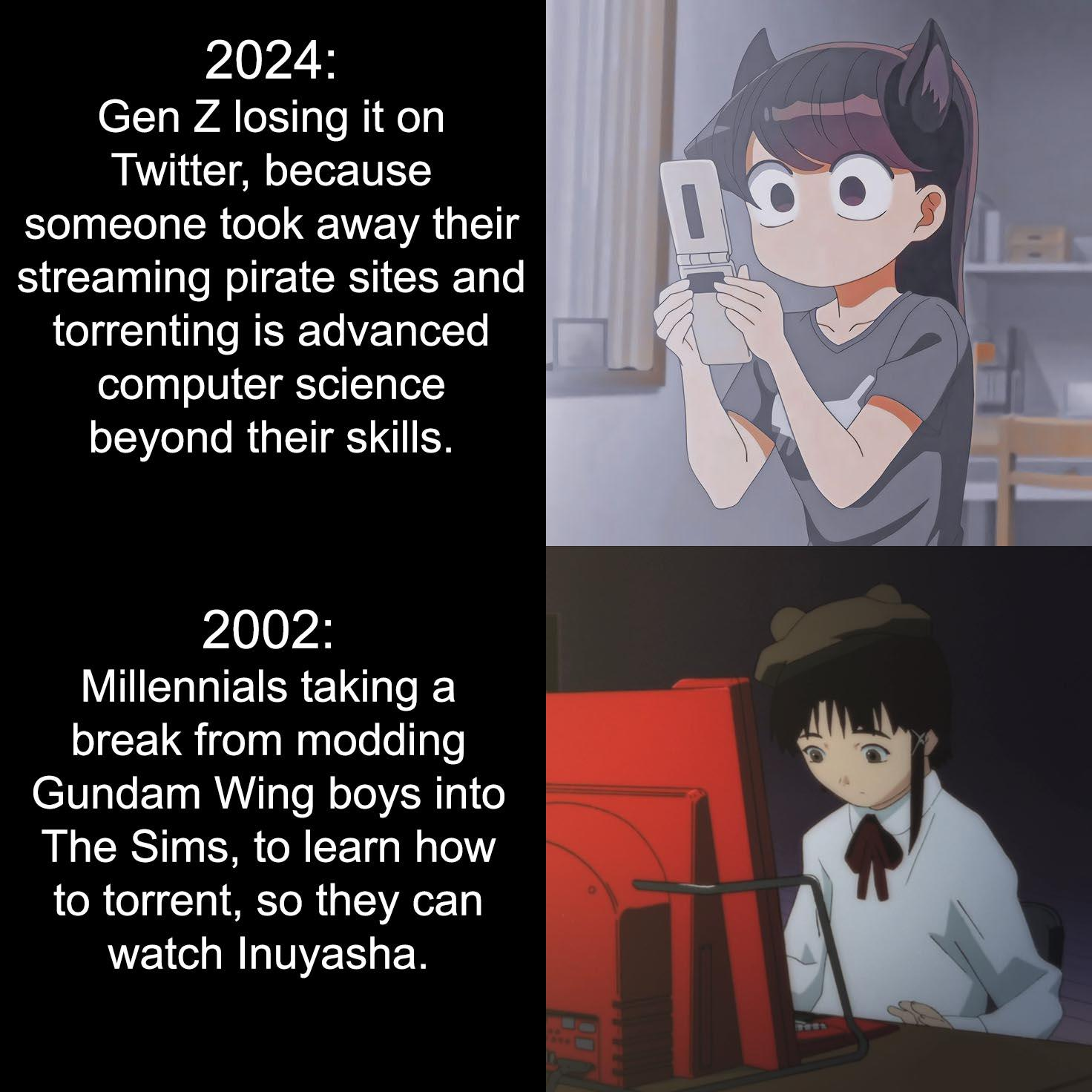this post was submitted on 18 Oct 2024
723 points (94.7% liked)
Piracy: ꜱᴀɪʟ ᴛʜᴇ ʜɪɢʜ ꜱᴇᴀꜱ
61199 readers
146 users here now
⚓ Dedicated to the discussion of digital piracy, including ethical problems and legal advancements.
Rules • Full Version
1. Posts must be related to the discussion of digital piracy
2. Don't request invites, trade, sell, or self-promote
3. Don't request or link to specific pirated titles, including DMs
4. Don't submit low-quality posts, be entitled, or harass others
Loot, Pillage, & Plunder
📜 c/Piracy Wiki (Community Edition):
🏴☠️ Other communities
FUCK ADOBE!
Torrenting/P2P:
Gaming:
💰 Please help cover server costs.
 |
 |
|---|---|
| Ko-fi | Liberapay |
founded 2 years ago
MODERATORS
you are viewing a single comment's thread
view the rest of the comments
view the rest of the comments


It's not just one generation receiving an education vs. another one that didn't. It's that the platforms the generations used are fundamentally different.
Gen X / Millennials grew up with Macs and PCs, computers that were fundamentally not locked down. You could install any software you wanted. You could modify the OS in many ways. DRM wasn't really a thing in general, and there were almost always easy ways around it.
Gen Z / Gen Alpha grew up mostly with cell phones. The phones they had are much more powerful than the PCs from 20-30 years ago, but they're incredibly locked down. The only applications you're allowed to use are the ones that Apple / Google allow on their app stores, unless you root your phone which is a major risk. It's very hard to even load up your own audio files, movies or images let alone "dodgy" ones. DRM is everywhere, and the DMCA means you risk serious prison time if you bypass access controls.
Gen X / Millennials grew up at a time when there were still more than 5 tech companies in the world, and the companies out there competed with each-other. There were plenty of real standards, and lots of other de-facto standards that allowed programs to interoperate. Now you're lucky if you can even use an app via its website vs. using a required app.
It's not just a difference in education. It's that companies have gained a lot more power, and the lack of antitrust enforcement has made for plenty of walled gardens and "look but don't touch" experiences.